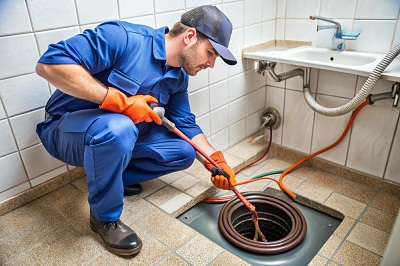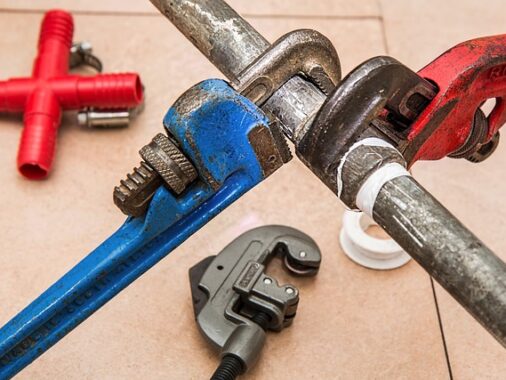Maintaining clean and functional drains is essential for the overall health of your home or commercial property. Clogged drains can lead to numerous problems, including foul odors, slow water drainage, and even severe damage to your plumbing system. Regular drain cleaning ensures that your pipes are free from obstructions, reducing the risk of expensive repairs. In this comprehensive guide, we will discuss the importance of regular drain cleaning, how to do it, and why you should consider professional services for optimal results.
Why Regular Drain Cleaning is Crucial
Prevention of Clogs and Blockages
One of the primary reasons for regular drain cleaning is the prevention of clogs. Over time, debris such as hair, soap scum, food particles, and grease accumulate in your pipes. These materials gradually form blockages that can obstruct the flow of water, causing slow drains and, in severe cases, complete blockages. By cleaning your drains regularly, you can remove these build-ups before they become problematic.
Avoid Expensive Repairs
Clogged drains, if left untreated, can result in serious damage to your plumbing system. Pressure builds up behind the blockage, leading to cracks, leaks, or even burst pipes. The cost of repairing or replacing damaged pipes is significantly higher than the cost of routine maintenance. Regular drain cleaning can save you money by extending the life of your plumbing system and preventing costly repairs.
Eliminate Foul Odors
When debris accumulates in your drains, it can create an environment where bacteria thrive. This bacterial growth can produce unpleasant odors that permeate through your home or business. Regular drain cleaning eliminates these odor-causing substances, keeping your space smelling fresh and clean.
Maintain Healthy and Clean Environment
A clogged or poorly maintained drain can lead to unsanitary conditions. Stagnant water, mold growth, and bacteria accumulation can pose health risks to you and your family. Cleaning your drains ensures that wastewater flows away properly, reducing the risk of contamination and promoting a healthier living environment.
Prevent Water Damage
Water damage is one of the most common results of neglected drains. Overflowing sinks, toilets, and bathtubs due to clogged drains can cause significant water damage to your home’s structure, flooring, and personal belongings. Regular drain cleaning minimizes the likelihood of such incidents by ensuring that water can flow freely through your plumbing system.
How to Clean Your Drains: Step-by-Step Guide
1. Use Boiling Water
One of the simplest ways to clean your drains is to use boiling water. Boiling water helps break down grease, soap scum, and other substances that may be clogging your pipes. To do this:
- Boil a pot of water.
- Carefully pour the boiling water directly into the drain.
- Repeat this process two or three times for maximum effectiveness.
This method works best for minor clogs and is most effective when done regularly.
2. Use Baking Soda and Vinegar
A natural and eco-friendly option for drain cleaning is a combination of baking soda and vinegar. These household staples create a chemical reaction that can break down clogs and clean your pipes. Here’s how to do it:
- Pour half a cup of baking soda into the drain.
- Follow it with one cup of vinegar.
- Let the mixture fizz and work its magic for about 15-30 minutes.
- Flush the drain with hot water to remove any remaining debris.
This method is not only effective but also helps deodorize the drain.
3. Use a Plunger
A plunger can be a powerful tool for clearing clogs in sinks, toilets, and bathtubs. The suction created by the plunger can dislodge debris and allow water to flow freely again. To use a plunger effectively:
- Place the plunger over the drain opening, ensuring a tight seal.
- Push and pull the plunger in a vigorous motion, creating a vacuum.
- After a few pumps, check if the water is draining properly.
- Repeat the process if necessary.
4. Use a Drain Snake or Auger
For more stubborn clogs, a drain snake or auger can be highly effective. These tools are designed to reach deep into the pipes to remove blockages that can’t be cleared with a plunger. Here’s how to use a drain snake:
- Insert the snake or auger into the drain until you feel resistance.
- Turn the handle to break through the clog and push the debris out of the pipe.
- Pull the snake back out and dispose of the debris.
This method is particularly useful for clogs caused by hair, grease, or large objects.
5. Enzyme-Based Cleaners
Enzyme-based cleaners are a safe and eco-friendly option for maintaining your drains. These cleaners contain natural bacteria that break down organic materials like grease, hair, and food particles. Enzyme cleaners are ideal for regular maintenance because they help prevent future clogs without damaging your pipes.
- Follow the manufacturer’s instructions for the appropriate amount of cleaner.
- Pour the cleaner down the drain.
- Allow it to sit for the recommended amount of time.
- Flush the drain with water to remove any loosened debris.
When to Call a Professional Plumber
While DIY methods can be effective for minor clogs and routine maintenance, some situations may require the expertise of a professional plumber. If you experience any of the following, it’s time to call in a professional:
- Recurring clogs: If your drains are constantly clogging despite regular cleaning, there may be a deeper issue with your plumbing system.
- Slow draining: If your water drains slowly, even after cleaning, it could indicate a blockage further down the line that requires specialized equipment to resolve.
- Sewage backups: If you notice sewage coming up through your drains, it’s a sign of a serious problem that needs immediate attention from a professional.
- Persistent foul odors: If bad smells persist even after cleaning, there may be a hidden issue with your plumbing that requires professional intervention.
Professional plumbers have the tools and expertise to thoroughly clean your drains, remove stubborn clogs, and address any underlying issues with your plumbing system.
How Often Should You Clean Your Drains?
The frequency of drain cleaning depends on several factors, including the age of your plumbing system, the type of drains, and how much use they receive. As a general rule, you should aim to clean your drains at least once every few months. High-traffic drains, such as kitchen sinks and showers, may require more frequent cleaning due to the buildup of food particles, grease, and hair. Additionally, scheduling an annual professional drain cleaning can help ensure that your pipes remain in optimal condition.
Conclusion
Regular drain cleaning is an essential part of maintaining a healthy plumbing system and avoiding costly repairs. By taking proactive steps to clean your drains, you can prevent clogs, eliminate foul odors, and extend the life of your pipes. Whether you choose to use simple DIY methods like boiling water or baking soda and vinegar or enlist the help of a professional plumber, keeping your drains clean should be a top priority.



